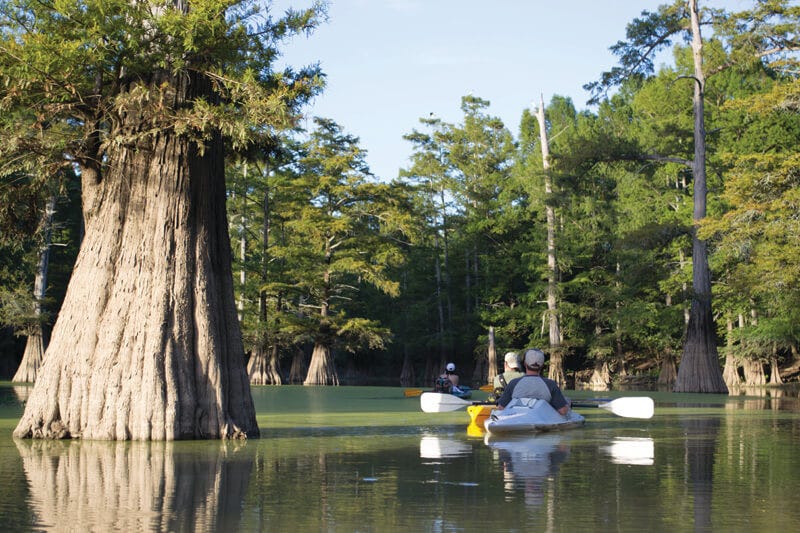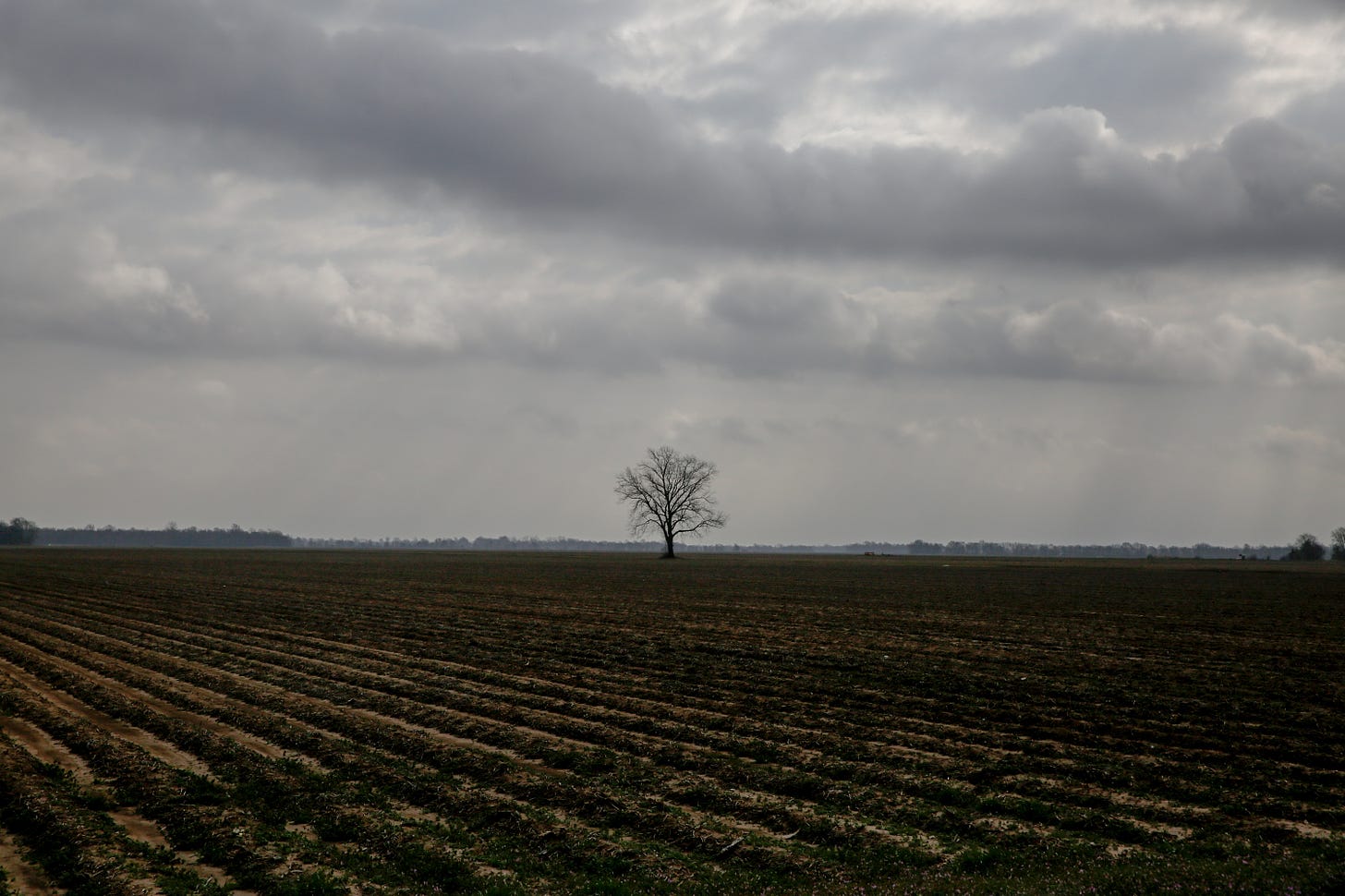Mississippi's Wood Between the Worlds
The Mississippi Delta exists at the intersection of relative material poverty and profound cultural abundance.
In C.S. Lewis’s wonderful book The Magician’s Nephew (I’m convinced it’s one of the best in the Narnia series), he describes a mystical, seemingly transitory little place called the Wood Between the Worlds.
The wood is something of an alighting place, described as a quiet forest full of shallow pools. The characters in the book use magic rings to travel between worlds via the pools.
I absolutely love the way Lewis talks about the characters’ experiences of the wood:
It was the quietest wood you could possibly imagine. There were no birds, no insects, no animals, and no wind. You could almost feel the trees growing. ... You could almost feel the trees drinking the water up with their roots. This wood was very much alive. When he tried to describe it afterwards Digory always said, "It was a rich place: as rich as plum cake."
A rich place.
I’ve lived in Mississippi my whole life, and in that time, I’ve made select few trips to the Delta—informally the region between the Mississippi and Yazoo Rivers and sometimes called “the most southern place on earth.” But anytime I happen to be there, I get a feeling I believe to be similar to what Digory felt when he visited the Wood Between the Worlds.
At first glance, the Delta isn’t much. It’s made up of around 7,000 square miles of alluvial bottomlands dotted with large swaths of farmland and tiny towns. Driving through it can be pretty dull and you might even end up on a dirt road or two. Economically, the Delta isn’t a very “rich” place at all. Some of the poorest and least populous counties in the United States are in the Delta.
That said, the Delta could probably be considered the cultural capital of the Deep South, and maybe even of the whole country. At least two genres of music—blues and rock and roll—trace their origins to the Delta and its famous juke joints. It’s also the birthplace of Mississippi legends like Shelby Foote and James Earl Jones and home to historically significant newspapers like the Clarksdale Press Register and Greenwood Commonwealth (maybe I’m the only one that cares about the newspapers, but hopefully I've made my point). Finally, no list of the Delta’s claims to fame can be complete without mention of hot tamales.
I was recently part of a wedding in the central Delta hub of Cleveland. Many of the people I met there were among the kindest—to be sure, the “richest”—souls I have ever met. They truly helped Mississippi earn its nickname as the Hospitality State.
The Delta exists at the intersection of relative material poverty and profound cultural abundance.
Besides its almost ghostly natural beauty, I think this tension is what accounts for the aforementioned feeling I get when visiting. “Ache” isn’t quite the right word. Maybe “reverie.” It’s almost as if when I leave the Delta, it feels like the entire thing just might have been a daydream. At any rate, there is a certain metaphysics about the Delta that almost anyone who visits can feel. You can almost feel the bald cypress drinking up the swampwater with their roots. This place is very much alive.
A rich place, indeed: as rich as a hot tamale.






